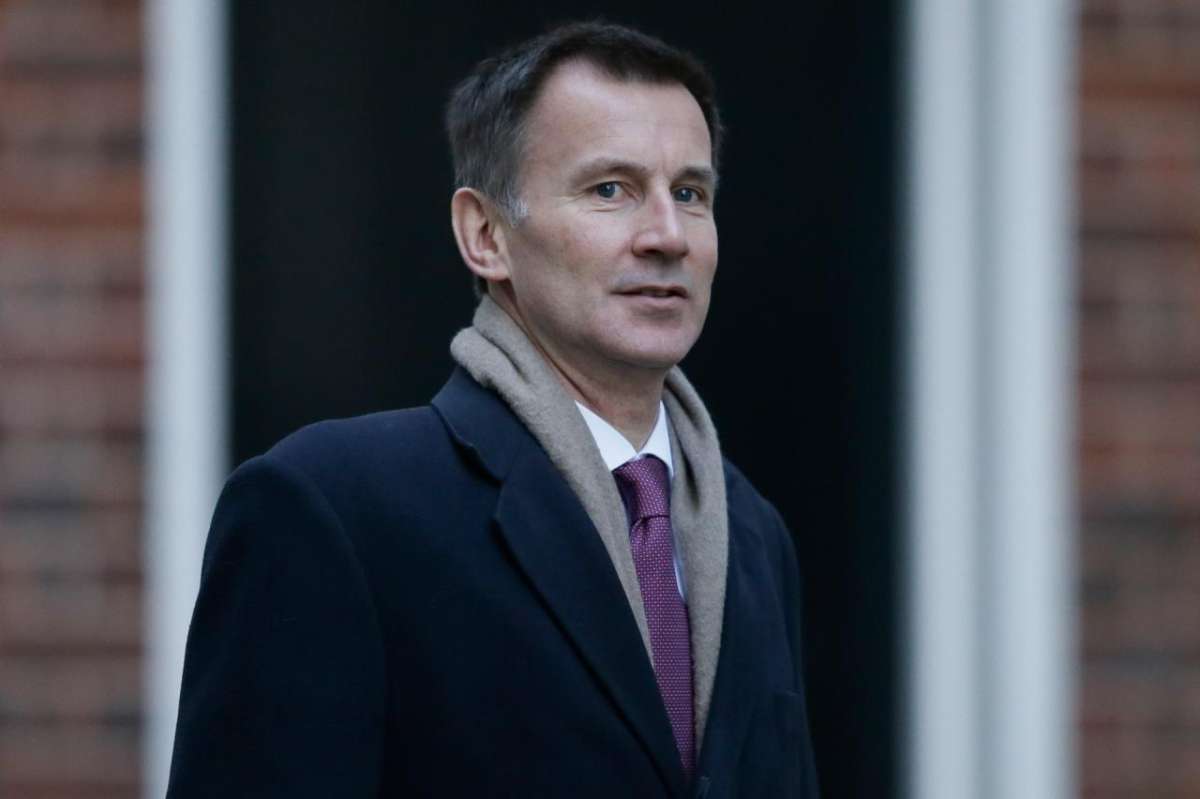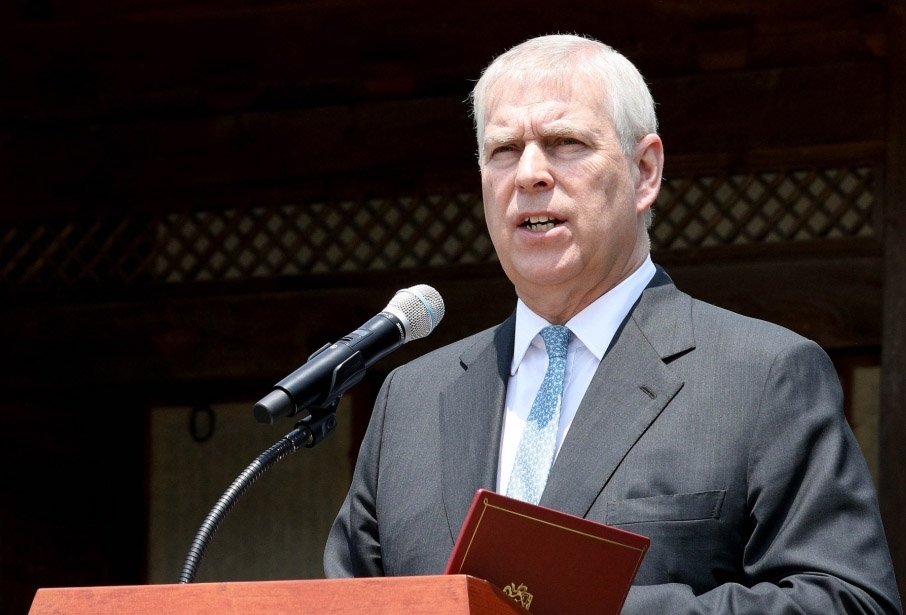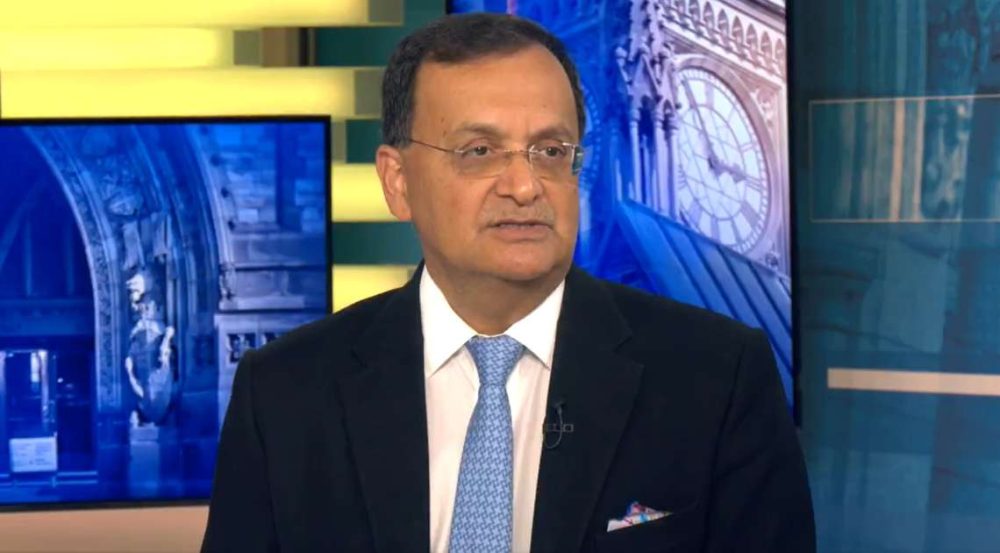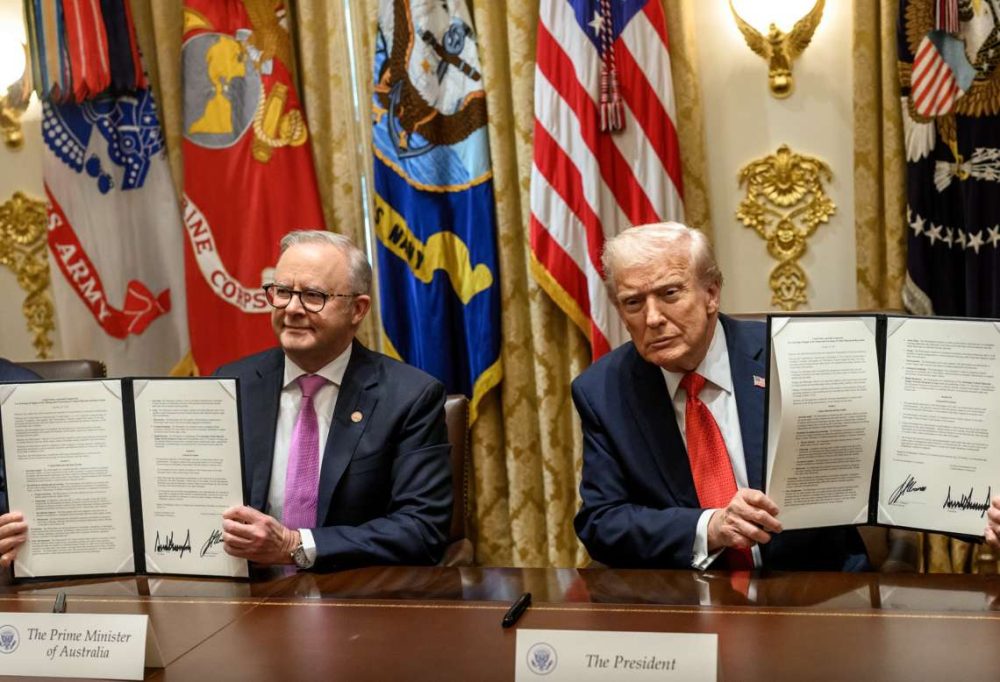The chancellor of the exchequer said no government could control markets — but stressed his action would give certainty over public finances and help secure growth…reports Asian Lite News
The British government on Monday axed almost all of its debt-fuelled tax cuts unveiled last month to avert fresh markets chaos, in a humiliating climbdown for embattled Prime Minister Liz Truss.
The shock move by new finance chief Jeremy Hunt, parachuted into the job on Friday to replace sacked Kwasi Kwarteng, leaves Truss’ position in a precarious state after a series of embarrassing U-turns.
The chancellor of the exchequer said no government could control markets — but stressed his action would give certainty over public finances and help secure growth.
“The most important objective for our country right now is stability,” he added in a contrite statement, ahead of setting out further details in parliament later Monday.
Hunt scrapped plans to axe the lowest rate of income tax, and curbed the government’s flagship energy price freeze — pulling the plug in April instead of late 2024.
A proposed reduction in shareholder dividend tax was also binned, along with planned tax-free shopping for tourists and a freeze on alcohol duty.
Truss fired her close friend Kwarteng on Friday after their recent tax-slashing budget sparked markets chaos — fuelling intense speculation over her political future one month after taking office.
His action sent the British pound jumping to $1.1346, while bond yields dipped.
Truss had already staged two embarrassing budget U-turns, scrapping tax cuts for the richest earners and on company profits.
“All departments will need to redouble their efforts to find savings, and some areas of spending will need to be cut.”
He met over the weekend with the governor of the Bank of England, Andrew Bailey, and the head of the Debt Management Office to discuss his plans.
The budget furore has reportedly sparked a plot to oust the prime minister.
“That sound you can hear is the death knell for Trussonomics, with the vast majority of her tax-cutting plans now consigned to the bin,” said Laura Suter, head of personal finance at stockbroker AJ Bell.
In two weeks’ time, Hunt will unveil his medium-term fiscal plan alongside independent economic forecasts from the Office for Budget Responsibility.
“All the chancellor’s statement underlines is that the damage has been done,” said its shadow finance minister Rachel Reeves.
On September 23, the government unveiled a 45-billion-pound tax cut package, the largest since 1972, to boost economic growth, but it threw financial markets into turmoil as the British pound collapsed to record lows and government borrowing costs rose sharply.
Investors are concerned that the tax-cutting measures will ramp up public borrowing, bring serious fiscal uncertainty and push up already high inflation.
To calm markets, the Bank of England announced temporary purchases of long-dated UK government bonds in the end of September, and later stepped up the measures, increasing the maximum size of the auctions and expanding bond buying to include index-linked gilts.
The central bank on Monday confirmed that it terminated these operations and ceased all bond purchases on Friday, noting that “these operations have enabled a significant increase in the resilience of the sector”.
Rishi Sunak vindicated
Rishi Sunak was vindicated in dramatic fashion on Monday when Britain’s new chancellor, Jeremy Hunt, ripped up the economic policies on which Liz Truss was elected Tory party leader and prime minister.
As an increasing number of Tory MPs came out publicly for Truss to step down immediately, Hunt made an emergency statement and later addressed the Commons in an attempt to calm the markets.
Hunt, who took over when Kwasi Kwarteng was sacked, said in his statement: “We will reverse almost all the tax measures announced in the growth plan three weeks ago that have not started parliamentary legislation.”
In a tweet, Truss gave no indication she accepted blame for pursuing unfunded tax cuts – and not taking heed of the warnings Rishi had repeatedly given that she was “divorced from reality”.
The “Prime Minister In Name Only” (PINO), as Truss is now being called, said: “The British people rightly want stability, which is why we are addressing the serious challenges we face in worsening economic conditions. We have taken action to chart a new course for growth that supports and delivers for people across the United Kingdom.”
The BBC’s political editor, Faisal Islam, commented: “We have witnessed an utterly extraordinary un-budget, perhaps marking the biggest U-turn in British economic history….We may need new terminology. ‘U-turn’ suggests a controlled manoeuvre. This is like a plane trying to do the jet engine equivalent of a handbrake turn.”
ALSO READ-Jagriti Yadav becomes British High Commissioner for a day














